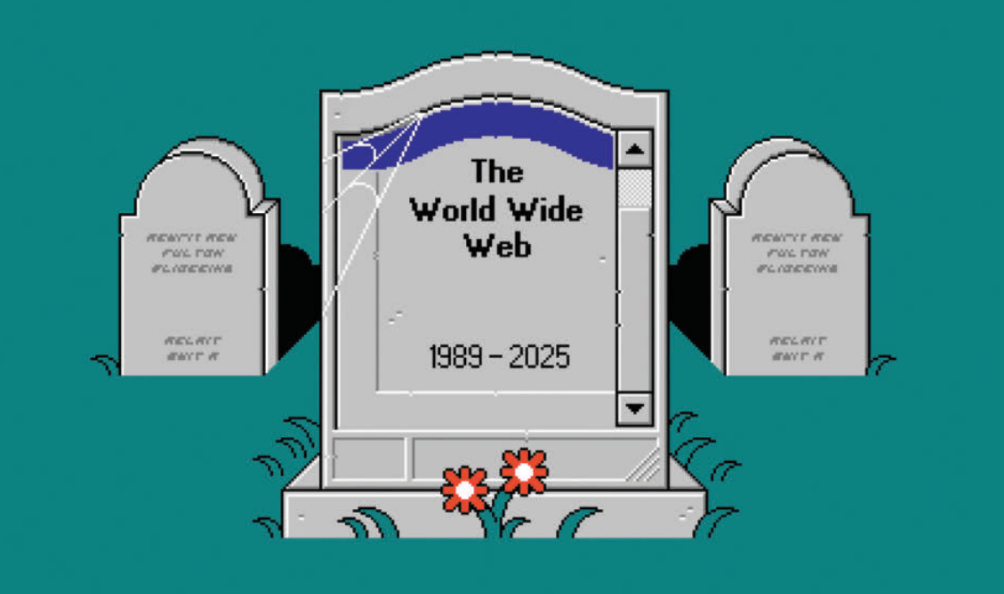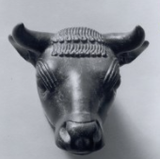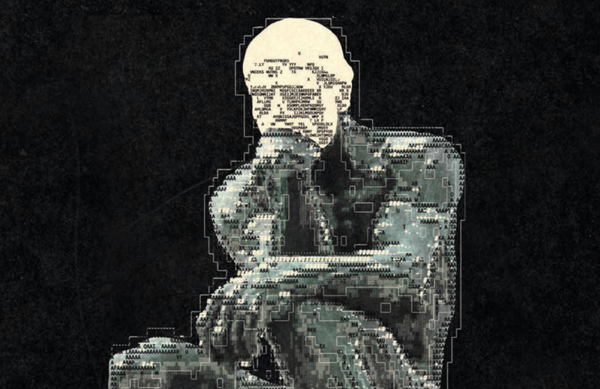被AI侵蚀的互联网
生成式人工智能正在颠覆互联网的基石。当用户通过聊天机器人而非传统搜索获取答案时,新闻、论坛、参考资料等内容网站的访问流量便会枯竭,其赖以为生的广告商业模式也随之崩溃。大型内容公司尚能通过“利诱与起诉”的方式与AI巨头博弈,但互联网上数以亿计的小网站却无力反抗。面对这场生存危机,业界正紧急探索让AI为内容付费的新模式,因为这不仅关乎创作者的生存,更关乎开放网络乃至民主社会的未来。

大约从去年年初开始,大型媒体公司的老板们开始忧心忡忡地致电马修·普林斯(Matthew Prince)。普林斯的公司Cloudflare为全球约五分之一的网站提供安全基础设施,这些媒体高管告诉他,他们正面临着一种严重的新网络威胁。“我问,‘是什么,朝鲜黑客吗?’”他回忆道,“他们说,‘不,是人工智能。’”
这些高管们发现的趋势如今已愈发清晰:人工智能正在改变人们浏览网页的方式。当用户向聊天机器人而非传统搜索引擎提出问题时,他们得到的是答案,而不是可供点击的链接。其结果是,“内容”出版商——从新闻提供商、在线论坛到维基百科等参考网站——的访问流量正经历着惊人的下降。

随着人工智能改变人们的浏览习惯,它也改变了互联网核心的经济契约。长期以来,人类的访问流量一直通过在线广告被商业化;如今,这些流量正在枯竭。内容生产者正紧急寻找新的方法,以促使AI公司为信息付费。如果他们失败,开放的万维网可能会演变成一种截然不同的东西。
自2022年底ChatGPT发布以来,人们已接纳了一种在线寻找信息的新方式。其开发商OpenAI称,大约有8亿人正在使用它。随着OpenAI等新兴企业的崛起,占据美国传统搜索市场约90%份额的谷歌,也为自己的搜索引擎增加了AI功能以求跟上步伐。去年,它开始在部分搜索结果前加入AI生成的“概览”,如今这已无处不在。谷歌现在承诺,有了AI,用户可以“让谷歌为你搞定搜索”。
然而,当谷歌在“搞定搜索”时,人们便不再访问那些信息被抓取的网站了。据流量监测公司Similarweb估计,在截至今年6月的一年里,全球(由人类产生的)搜索流量下降了约15%。受影响最严重的,恰恰是那些通常能解答搜索问题的网站:科学和教育网站失去了10%的访问者,参考资料网站失去了15%,健康网站则流失了31%。
“我们曾与谷歌保持了很长时间的良好关系……但他们破坏了这项约定,”多媒体公司Dotdash Meredith的负责人尼尔·沃格尔(Neil Vogel)说。三年前,该公司旗下网站超过60%的流量来自谷歌,如今这一数字已降至35%左右。“他们在窃取我们的内容来与我们竞争,”沃格尔说。
“互联网的本质已经彻底改变了,”编码者在线论坛Stack Overflow的首席执行官普拉尚斯·钱德拉塞卡(Prashanth Chandrasekar)说道,“AI基本上正在切断大多数内容网站的流量命脉。”
然而,对于内容创作者而言,最大的问题在于,互联网上数以亿计的域名(网站)都太小了,既无法“利诱”也无法“起诉”科技巨头。它们的内容对于AI公司来说,合在一起至关重要,但每一个网站单独来看却又是可有可无的。
面对这一困境,一些科技公司和内容生产商正试图建立新的规则,探索让AI为内容付费的商业模式。其中一种模式由初创公司ProRata提出,该公司创始人比尔·格罗斯(Bill Gross)正是上世纪90年代“按点击付费”网络广告的先驱。他提议,应将放置在AI生成答案旁的广告收入,按照各网站内容对该答案贡献的比例,重新分配给这些网站。格罗斯表示,他的主要目标是“展示一个公平的商业模式,并最终能被其他人效仿”。
内容生产者也在重新思考他们的商业模式。新闻出版商正在规划“谷歌归零”(Google zero)的未来,利用新闻邮件(newsletters)和应用程序(apps)来触达那些不再通过搜索访问他们的客户,并将内容转移到付费墙后或举办线下活动。事实也证明,相比文本,音频和视频在法律上和技术上都更难被AI引擎所总结。
当然,也有人认为网络并未衰落。谷歌的罗比·斯坦(Robby Stein)就认为,网络正处于一个“令人难以置信的扩张时刻”。AI搜索让人们能以新的方式提问,这可能反而会增加流量。并且,一个AI引擎为了生成答案可能会扫描数百个页面,其信息来源比人类读者更多元化。
历史上,万维网的“死亡”已被预言过多次——先是说它会死于社交网络,然后是应用程序——但都未成真。然而,人工智能或许是它迄今为止面临的最大威胁。如果万维网要以接近其目前的形式继续存在,网站将必须找到新的收费方式。“毫无疑问,人们更喜欢AI搜索,”格罗斯说,“而为了让互联网生存下去,为了让民主生存下去,为了让内容创作者生存下去,AI搜索必须与创作者分享收入。”【全文完】
原文分析
一、 背景阐述
这篇文章的核心,是探讨人工智能(AI)对开放式万维网(the open web)的生存模式构成的颠覆性威胁。要理解这一点,我们需要先向读者讲明互联网内容生态过去的一个基本“经济契约”:用户通过谷歌等搜索引擎寻找信息,搜索引擎提供指向各个内容网站(如新闻媒体、维基百科、专业论坛等)的链接,用户点击链接访问这些网站,网站通过展示广告来将这些“流量”变现,从而有能力持续创作内容。这是一个共生关系。
然而,以ChatGPT为代表的生成式AI彻底改变了这个模式。用户现在直接向AI提问并获得整合好的答案,而不再需要点击链接访问源网站。这就导致了文章所说的核心问题:内容网站的流量正在“枯竭”(drying up),其传统的广告商业模式随之崩溃。这不仅是商业模式的危机,更是整个开放、多元的互联网信息生态的生存危机。
二、 叙事逻辑与结构
这篇文章的叙事结构清晰、逻辑严谨,是一篇高质量分析性报道的典范。它采用了“提出问题 — 分析问题 — 探讨对策 — 呈现反论 — 得出结论”的经典结构,层层递进,极具说服力。
- 开篇点题:文章开篇即通过媒体高管向Cloudflare公司求助的生动故事,以及触目惊心的“万维网墓碑”配图,直接抛出核心论点——AI正在“杀死”万维网,迅速抓住读者的注意力。
- 分析问题:接着,文章通过引述Similarweb的统计数据(全球搜索流量下降15%,新闻、参考资料、健康类网站流量大幅下滑)和业界人士(Dotdash Meredith和Stack Overflow的CEO)的控诉,具体论证了AI是如何“拦截”流量,并“窃取”内容来与内容生产者竞争的,使问题具体化、可感化。
- 探讨对策:在揭示了问题的严重性后,文章转向探讨解决方案。它先分析了大型内容生产商“利诱与起诉并举”(wooing and suing)策略的局限性,然后重点介绍了三种正在兴起的、试图让AI为内容付费的创新商业模式:Cloudflare的“按爬取付费”系统、Tollbit的“机器人付费墙”以及ProRata的广告收入分成模式。这部分展现了市场为应对危机所做的努力。
- 呈现反论:为了保证报道的平衡性,文章也公平地给出了谷歌方的反驳观点,即AI让网络规模扩张,并能以新的方式处理信息。这体现了作者的严谨,但文章的整体基调显然并未被此说服。
- 总结升华:最后,文章回到核心论点,强调AI带来的威胁是空前的,并借创业先驱比尔·格罗斯(Bill Gross)之口,点明了唯一的出路——“AI搜索必须与创作者分享收入”,以此维系内容生态乃至民主社会的存续。
三、 编译建议
这篇文章信息量密集,论证有力,对于希望了解科技前沿和媒介生态的读者来说,价值极高。我认为,我们可以根据发布的栏目和目标受众,在全译和节译之间做选择。
- 如果目标是为深度阅读栏目提供一份权威的分析范本,我建议采用“全译”(full translation)。这样做可以完整保留原文丰富的细节、严谨的逻辑链条和多方的观点交锋,让核心读者对这一复杂议题有全面而深刻的认识。
- 如果目标是让更广泛的普通读者快速理解这一核心变革,我更倾向于采用“节译”(abridged translation)。因为原文中关于几家初创公司商业模式的具体介绍可能对普通读者来说略显复杂。节译可以这样做:
- 保留核心框架:必须保留“问题-分析-对策-结论”的完整逻辑。
- 聚焦核心冲突:重点编译开篇提出的问题、AI如何切断网站流量的核心论证部分(包括数据和CEO引语),这部分最具冲击力。
- 概括解决方案:对于几种新商业模式,无需逐一详细翻译其运作方式,可以将其概括为“业界正在探索一系列创新模式,旨在建立让AI为内容付费的新规则”。
- 精简但保留反方观点:为体现平衡,应简要提及谷歌的看法,但不必展开。
- 强化结论:结尾的呼吁——“AI搜索必须与创作者分享收入”——是全文的“文眼”,必须突出强调。
无论选择哪种方式,我们都要注意,这篇文章的立场是明确的:它站在内容创作者一边,对科技巨头当前的掠夺性行为持批判态度,并积极呼吁建立更公平的利益分配机制。我们在编译时,必须准确传达出这种带有紧迫感的批判性立场。
我们已经确定采用节译 (abridged translation) 的方式来处理这篇关于AI与万维网未来的报道。节译的精髓在于“提炼”与“重塑”——在完整保留原文核心论点和逻辑框架的前提下,删减对我们目标读者来说相对次要或过于繁琐的细节,并重新建立文本的连贯性,使其更适合快速阅读。
你可以看到,我主要保留了描述核心冲突的部分、对小型网站困境的分析以及结论部分,同时对解决方案和反方观点进行了概括和精简。
新闻原文
The future of the internet
World wide worries
Artificial intelligence is killing the web. Can anything save it?
AROUND THE beginning of last year, Matthew Prince started receiving worried calls from the bosses of big media companies. They told Mr Prince, whose firm, Cloudflare, provides security infrastructure to about a fifth of the web, that they faced a grave new online threat. "I said, 'What, is it the North Koreans?"," he recalls. "And they said, 'No. It's AI"
Those executives had spotted the early signs of a trend that has since become clear: artificial intelligence is transforming the way that people navigate the web. As users pose their queries to chatbots rather than conventional search engines, they are given answers, rather than links to follow. The result is that "content" publishers, from news providers and online forums to reference sites such as Wikipedia, are seeing alarming drops in their traffic.
As AI changes how people browse, it is altering the economic bargain at the heart of the internet. Human traffic has long been monetised using online advertising; now that traffic is drying up. Content producers are urgently trying to find new ways to make AI companies pay them for information. If they cannot, the open web may evolve into something very different.
Since the launch of ChatGPT in late 2022, people have embraced a new way to seek information online. OpenAI, the chatbot's maker, says that around 800m people use it. As OpenAI and other upstarts have soared, Google, which has about 90% of the conventional search market in America, has added AI features to its own search engine in a bid to keep up. Last year it began preceding some search results with Al-generated "overviews", which have since become ubiquitous. The company now promises that, with AI, users can "let Google do the Googling for you".
Yet as Google does the Googling, humans no longer visit the websites from which the information is gleaned. Similarweb, which measures traffic to more than 100m web domains, estimates that worldwide search traffic (by humans) fell by about 15% in the year to June. Science and education sites have lost 10% of their visitors. Reference sites have lost 15%. Health sites have lost 31%.
"We had a very positive relationship with Google for a long time...They broke the deal," says Neil Vogel, head of Dotdash Meredith, which owns titles such as People and Food & Wine. Three years ago its sites got more than 60% of their traffic from Google. Now the figure is in the mid-30s. "They are stealing our content to compete with us," says Mr Vogel.
"The nature of the internet has completely changed," says Prashanth Chandrasekar, chief executive of Stack Overflow, best known as an online forum for coders "AI is basically choking off traffic to most content sites," he says.
The bigger problem, however, is that most of the internet's hundreds of millions of domains are too small to either woo or sue the tech giants. Their content may be collectively essential to Al firms, but each site is individually dispensable.
Another model is being put forward by ProRata, a startup led by Bill Gross, a pioneer in the 1990s of the pay-as-you-click online ads that have powered much of the web ever since. He proposes that money from ads placed alongside AI-generated answers should be redistributed to sites in proportion to how much their content contributed to the answer. Mr Gross says his main aim is to "show a fair business model that other people eventually copy".
Content producers are also rethinking their business models. News publishers are planning for "Google zero", using newsletters and apps to reach customers who no longer come to them via search, and moving their content behind paywalls or to live events. Audio and video are also proving legally and technically harder for AI engines to summarise than text.
Not everyone thinks the web is in decline—on the contrary, it is in "an incredibly expansionary moment", argues Robby Stein of Google. As Al makes it easier to create content, the number of sites is growing. AI search lets people ask questions in new ways... which could increase traffic. An answer engine may scan hundreds of pages to deliver an answer, drawing on a more diverse range of sources than human readers would.
The death of the web has been predicted before—at the hands of social networks, then apps—and not come to pass. But AI may pose the biggest threat to it yet. If the web is to continue in something close to its current form, sites will have to find new ways to get paid. "There's no question that people prefer AI search," says Mr Gross. "And to make the internet survive, to make democracy survive, to make content creators survive, AI search has to share revenue with creators."





